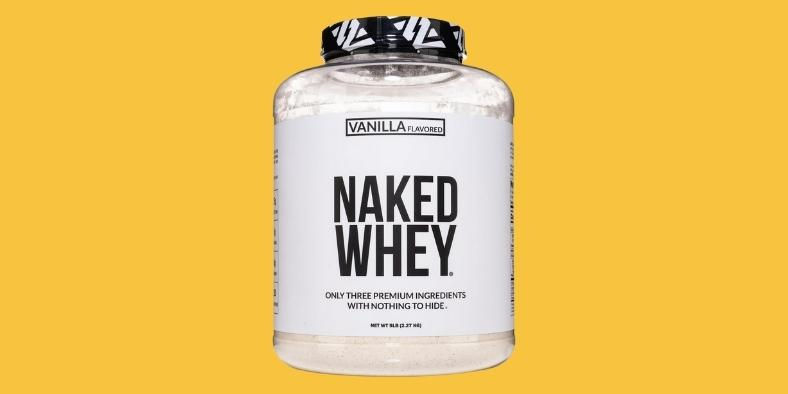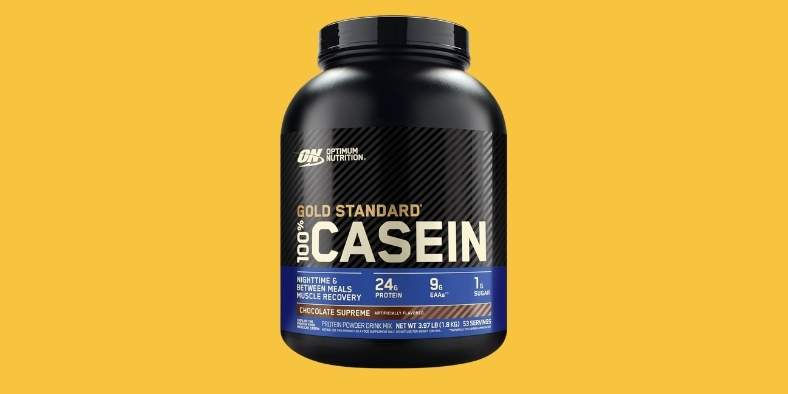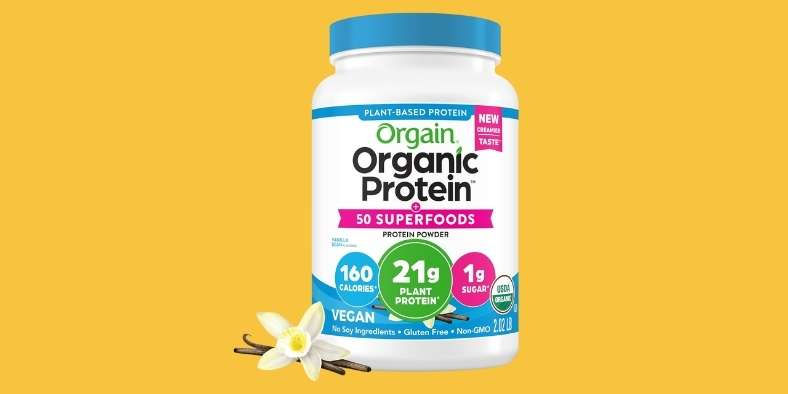
Table of Contents
Summary
When it comes to choosing the right protein powder, the options can feel overwhelming. With whey, casein, and plant-based proteins dominating the market, how do you know which one is best for you? Each type has unique benefits, making it essential to choose based on your fitness goals, digestion, and dietary preferences.
Whey protein is often praised for its fast absorption and muscle-building power, making it a favorite among athletes and bodybuilders. Casein, on the other hand, is a slow-digesting protein that provides sustained muscle recovery, making it ideal for nighttime use. Meanwhile, plant-based proteins cater to vegans, those with dairy sensitivities, and anyone looking for a more natural protein source.
But which one should you use? That depends on factors like muscle gain, weight loss, digestion, and dietary restrictions. In this guide, we’ll break down the key differences between whey, casein, and plant-based protein powders—so you can find the perfect fit for your needs.
Understanding Protein Powder and Its Role

Protein powder is more than just a supplement for bodybuilders—it plays a crucial role in muscle recovery, weight management, and overall health. Whether you're an athlete, someone trying to lose weight, or just looking to improve your diet, the right protein powder can help you reach your goals more efficiently.
Why Protein is Essential
Protein is made up of amino acids, which are the building blocks of muscle, tissue, enzymes, and hormones. Here’s why protein is vital:
Muscle Growth & Recovery
Repairs and rebuilds muscle fibers after exercise.
Weight Management
Increases satiety and helps control appetite.
Metabolism Boost
Supports lean muscle mass, which burns more calories at rest.
Immune & Hormone Function
Plays a role in cell repair and immune support.
The Difference Between Fast & Slow-Digesting Proteins
Not all protein powders work the same way. The speed at which they are digested and absorbed can impact how and when they should be used.
Fast-Digesting Protein (Whey)
Quickly absorbed, making it ideal for post-workout recovery.
High in leucine, a key amino acid for muscle protein synthesis.
Slow-Digesting Protein (Casein)
Provides a steady release of amino acids over 6-8 hours.
Best for nighttime use to prevent muscle breakdown.
Plant-Based Protein (Varies)
Generally slower digesting than whey but varies by source.
Some blends combine pea, rice, and hemp to create a complete protein profile.
Understanding these digestion rates will help you determine which protein powder aligns best with your fitness and dietary needs.
Whey Protein: The Fast-Digesting Muscle Builder

Whey protein is one of the most popular and widely studied protein powders available. It’s known for its fast absorption, high amino acid content, and muscle-building properties, making it a go-to choice for athletes and fitness enthusiasts.
What is Whey Protein?
Whey protein is a byproduct of cheese production, extracted from milk during the curdling process. Once separated, it is processed into a powder form, with different levels of filtration creating three main types:
Whey Protein Concentrate (WPC)
Contains 70-80% protein, with some fats and carbohydrates. Most affordable and has a creamy texture.
Whey Protein Isolate (WPI)
Over 90% protein, lower in lactose and fat, making it ideal for those with mild lactose sensitivity.
Whey Protein Hydrolysate (WPH)
Pre-digested for even faster absorption, commonly used in medical and infant nutrition.
Benefits of Whey Protein
Rapid Absorption
Whey is absorbed quickly, making it ideal for post-workout recovery when the body needs immediate amino acids.
High in Leucine
Contains branched-chain amino acids (BCAAs), particularly leucine, which plays a critical role in muscle protein synthesis.
Supports Fat Loss
Studies suggest whey protein can increase satiety and support weight management by reducing cravings and increasing metabolism.
Boosts Immune Function
Whey contains immunoglobulins and lactoferrin, which help support immune health.
Who Should Use Whey Protein?
Athletes and Bodybuilders
Great for muscle recovery and growth.
Anyone Looking to Lose Weight
Helps maintain lean muscle while promoting fat loss.
Those Who Need Quick Nutrition
Ideal as a fast, convenient meal replacement.
Potential Drawbacks of Whey Protein
Not Ideal for Lactose-Intolerant Individuals
Whey concentrate contains lactose, though whey isolate has minimal lactose and may be a better option.
May Cause Digestive Issues
Some people experience bloating or discomfort, especially with lower-quality whey proteins containing additives.
Casein Protein: The Slow-Release Recovery Fuel

While whey protein is known for its fast absorption, casein protein works differently. It is a slow-digesting protein that releases amino acids gradually, making it ideal for muscle recovery, prolonged satiety, and nighttime supplementation.
What is Casein Protein?
Casein is another milk-derived protein, making up nearly 80% of the protein content in cow’s milk. Unlike whey, casein forms a gel-like substance in the stomach, resulting in a slow, steady release of amino acids over several hours.
There are two main types:
Micellar Casein
The most natural and slowest-digesting form.
Casein Hydrolysate
Pre-digested for faster absorption but still slower than whey.
Benefits of Casein Protein
Extended Muscle Recovery
Since casein provides a slow, sustained release of amino acids, it prevents muscle breakdown overnight or during long periods without food.
Greater Satiety
Casein is digested more slowly than whey, making it an excellent meal replacement or bedtime protein to keep you full longer.
Supports Lean Muscle Maintenance
Helps preserve muscle mass during calorie deficits or fasting.
Rich in Calcium
Since casein is milk-derived, it contains natural calcium, which supports bone health.
Who Should Use Casein Protein?
People Looking for Overnight Recovery
Ideal for those who want sustained muscle repair during sleep.
Those Struggling with Late-Night Cravings
Casein’s slow digestion helps curb hunger for hours.
Individuals on a Cutting Diet
Great for preserving muscle mass while losing fat.
Potential Drawbacks of Casein Protein
Not Ideal for Post-Workout
Due to its slow absorption, it is less effective for immediate muscle recovery than whey.
Contains Lactose
May not be suitable for those with lactose intolerance.
Thicker Texture
Casein mixes into a creamier, thicker consistency, which some may prefer while others may find difficult to drink.
Plant-Based Protein: The Vegan-Friendly Option

For those who avoid dairy or prefer a plant-based diet, plant-based protein powders offer a high-quality, nutrient-dense alternative to whey and casein. Made from sources like pea, rice, hemp, and soy, these proteins are great for muscle building, weight management, and digestion—especially for those with lactose intolerance or dairy sensitivities.
What is Plant-Based Protein?
Unlike animal-based proteins, plant proteins come from legumes, seeds, grains, and other plant sources. Some individual plant proteins lack one or more essential amino acids, which is why many plant-based protein powders use a blend of different sources to create a complete protein profile.
Common Types of Plant-Based Proteins
Pea Protein
High in BCAAs, supports muscle growth, and is easy to digest.
Brown Rice Protein
Hypoallergenic, contains key amino acids, but low in lysine.
Hemp Protein
Packed with omega-3 fatty acids but lower in protein content.
Soy Protein
A complete protein, similar to whey, but some prefer to avoid it due to concerns about phytoestrogens.
Pumpkin Seed & Sunflower Protein
Emerging plant-based proteins with additional micronutrients.
Benefits of Plant-Based Protein
Dairy-Free & Hypoallergenic
Ideal for those who are lactose intolerant or allergic to dairy.
Digestive-Friendly
Easier on the stomach than whey or casein, especially for those with gut sensitivities.
Rich in Fiber & Nutrients
Many plant-based proteins contain fiber, antioxidants, and healthy fats in addition to protein.
Sustainable & Eco-Friendly
Produces a lower environmental impact compared to dairy-based proteins.
Who Should Use Plant-Based Protein?
Vegans & Vegetarians
The best option for those avoiding animal-based products.
Individuals with Dairy Sensitivities
Helps prevent bloating and digestive discomfort.
Anyone Looking for a More Natural Protein Source
Many plant-based proteins contain minimal processing and added nutrients.
Potential Drawbacks of Plant-Based Protein
Incomplete Amino Acid Profile (in some cases)
Certain plant proteins (like rice) need to be combined with others to form a complete protein.
Can Be Grainy or Less Creamy
Some plant proteins have a coarser texture compared to whey or casein.
Lower in Leucine Compared to Whey
Leucine is a key amino acid for muscle protein synthesis, and plant-based proteins generally contain less than whey.
Whey vs. Casein vs. Plant-Based: Which is Best for Your Goals?

Choosing the right protein powder depends on your fitness goals, dietary preferences, and digestion tolerance. While whey, casein, and plant-based proteins all provide essential amino acids, they differ in absorption rate, muscle-building potential, and overall benefits. Below is a comparison based on different fitness and health goals.
1. Best Protein for Muscle Gain
Winner:
Whey Protein
Why?
Whey is high in BCAAs, fast-digesting, and supports rapid muscle recovery.
Runner-up:
Plant-Based Protein (Blends) – A mix of pea, rice, and soy can provide a complete amino acid profile for muscle growth.
Not Ideal:
Casein – While casein helps preserve muscle, it is slow-digesting and not as effective immediately post-workout.
2. Best Protein for Weight Loss
Winner:
Whey or Plant-Based Protein
Why?
Whey is high in protein, low in calories, and supports appetite control. Plant-based proteins, especially those high in fiber, can promote satiety and digestion.
Runner-up:
Casein – Casein digests slowly, helping reduce late-night cravings, making it useful for weight management.
3. Best Protein for Digestive Sensitivity
Winner:
Plant-Based Protein
Why?
Dairy-based proteins like whey and casein contain lactose, which can cause bloating and discomfort for those with dairy intolerance.
Runner-up:
Whey Isolate – Since whey isolate contains minimal lactose, it may be tolerable for some individuals.
4. Best Protein for Sustained Energy
Winner:
Casein Protein
Why?
Casein provides slow and steady amino acid release, making it ideal for nighttime use or meal replacement.
Runner-up:
Plant-Based Protein – Some plant proteins, like hemp and pea, contain fiber and healthy fats for long-lasting energy.
5. Best Protein for Vegans & Dairy-Free Diets
Winner:
Plant-Based Protein
Why?
The only 100% dairy-free option, making it the go-to choice for vegans or those avoiding animal products.
Not Ideal:
Whey or Casein – Both are derived from milk and not suitable for dairy-free diets.
Side-by-Side Comparison Table
Finding the Right Protein Powder for You

Choosing between whey, casein, and plant-based protein depends on your goals, dietary needs, and digestion preferences. Each type offers unique benefits, making it important to select the one that aligns with your fitness and lifestyle.
Whey protein is fast-absorbing
and ideal for muscle growth and post-workout recovery.
Casein protein provides slow-digesting
sustained release, making it best for overnight recovery and meal replacement.
Plant-based protein is a great dairy-free option
supporting digestion, weight loss, and sustainable nutrition.
The best protein powder is the one that fits your body’s needs and personal goals. Some people may even benefit from combining different types—for example, using whey after workouts and casein before bed, or blending various plant-based proteins for a complete amino acid profile.
At the end of the day, quality matters more than type. Look for protein powders with minimal artificial additives, high-quality ingredients, and a protein content that matches your dietary needs.
Related Posts
How to Choose the Best Protein Powder for Your Goals and Lifestyle
Not sure where to start? This ultimate guide walks you through everything you need to know about selecting the right protein powder based on your fitness goals, dietary preferences, and budget.
5 Protein Powder Myths Debunked: Separating Fact from Fiction
Think protein powder causes weight gain or kidney damage? Get the science-backed truth behind the most common protein powder misconceptions.
DIY Protein Shakes: Crafting the Perfect Blend for Your Fitness Goals
Take control of your nutrition with homemade protein shakes. Learn the best ingredients, recipes, and blending techniques for muscle gain, weight loss, and post-workout recovery.
.jpg)